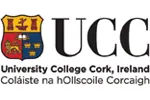We're moving! This site will be relocating to goingto.university in 2026. Please update your bookmarks to the new address.


| The award | How you will study | Study duration | Course start | Domestic course fees | International course fees |
|---|---|---|---|---|---|
| BA (Hons) | Full-time | 3 years | September | EU 3000 | EUR 3000 |
Overview
Applied Psychology provides the foundations for a career in psychology and affiliated fields, offering modules in the core areas ofmodern psychology, including cognitive, biological, developmental, abnormal and forensicpsychology.
Graduates of the BA are comprehensively trained in research skills, as throughout the degree you will conduct qualitative and quantitative research, and also complete an independent research project in your final year.
The BA Applied Psychology is accredited by the Psychological Society of Ireland,which entitles you to apply for postgraduate training in psychology in the specific area in which you choose tospecialise.
Course Details
The BA in Applied Psychology offers a rich and diverse curriculum. You will complete courses that examine psychology from a philosophical and cultural perspective, enhance your critical thinking and scientific communication skills and help you to develop a strong understanding of the main modern fields of psychology.
The combination of courses offered will enable you to develop confidence, knowledge and capability in both the research and practical application of psychological theory.
This course examines how psychology is applied in work and in the community, and howpsychological interventions might help real world problems.
Year 1 Modules:
Core
AP1105Experimental Design and Statistical Application (5 credits);
AP1108Research Methods in Psychology (10 credits);
AP1110Psychology as Science (5 credits);
AP1223Introduction to Biological and Cognitive Perspectives on Psychology (5 credits);
AP1349 Introduction to Developmental and Social Psychology (5 credits)
Electives
Two First Arts modules from Groups 1, 3, 4, 5,6 (see CK101)
Year 2 Modules:
Abnormal Psychology; Biological Basis of Behaviour; Cognitive Psychology; Developmental Psychology; Experimental Design and Statistical Applications; History and Philosophy of Psychology; Individual Differences; Social Psychology; Advanced Research Methods in Psychology; Real World Research in Applied Psychology
Year 3 Modules:
Core
Applied Biological Psychology; Applied Cognitive Psychology; Applied Social Psychology; Applied Developmental Psychology; Professional Skills; Project
Electives
Behavioural and Cognitive Neuroscience; Medical Imaging and Biomedical Devices; Forensic Psychology; Human Sexuality; Applying Psychology in Community Settings; Special Educational Needs; Positive Psychology; Applied Developmental Psychology; Work Psychology; Psychological Therapies; Human-Computer Interaction.
See the College Calendar for more detailed information on the programme and the Book of Modulesfor a more detailed description of programme modules.
Fact File
Course Code: CK106
Course Title: Applied Psychology
College: Arts, Celtic Studies and Social Sciences
Duration: 3 years
Teaching Mode: Full-time
Qualifications: BA (Hons)
NFQ Level: Level 8
Costs: Full-time EU/EEA/Swiss State undergraduate students may be exempt from paying tuition fees. The State will pay the tuition fees for students who satisfy the Free Fees Criteria. In 2016/17 the Student Contribution Charge will be EUR 3,000 and the Capitation Fee will be EUR 165.
2017 Entry Requirements: H5 in two subjects and O6/H7 in four other subjects in the Leaving Certificate from Irish, English, another language and three other subjects recognised for entry purposes.
Entry Points: 2016: 495. Points may vary from year to year.
Course Practicalities
Year 1
You will benefit from a high level of contact with lecturers, tutors and demonstrators.Classes are timetabled over the week, and many of the practical sessions have a compulsoryattendance requirement.
Year 2
There is a shift towards more self-directed learning, although this is augmented by 10–12 hours of scheduled lectures and practical sessions.
Year 3
You will attend 6-10 hours of lectures on average, and focus your time more heavily on your independent research project. As with all undergraduate degrees, there is an expectation that you will devote time before and after lectures and practicals to reading, research and developing your knowledge across all courses in the degree.
Assessment
Written exams will take place before Christmas and in May. Not all modules will have formal examinations. Many modules use other types of assessment such as examination-based assessment, essays and practical laboratory reports that describe the research that youcomplete.
Other modules incorporate reflective journals, case studies and class presentations into the assessment strategy.
The degree also uses some online learning technologies and some modules have assessments that involve participation in online discussion forums and other onlineassessments.
Application Procedure
EU Applicants: Application to Year 1 of the degree programme is made directly through the Central Applications Office(CAO). Applicants should apply online at www.cao.ie. The normal closing date for receipt of completed applications is 1st February of the year of entry.
Non-EU Applicants
Mature Applicants: Applicants should apply directly to the CAO and the closing date for the receipt of completed applications is 1st February of the year of proposed entry. Applicants must also apply to sit the MSAP exam.
Further Contact Information
Karen Coughlan, School Manager
021 4904519
2017 Entry Requirements: H5 in two subjects and O6/H7 in four other subjects in the Leaving Certificate from Irish, English, another language and three other subjects recognised for entry purposes.
Entry Points: 2016: 495. Points may vary from year to year.
Contact University College Cork (UCC) to find course entry requirements.
Below are some suggested courses at other providers that you may also be interested in:
Biogeosciences: Analysis of Ecosystem and Science Communication MSc
Dipartimento di Scienze della Terra, University of Milan
Find out moreProfessional LLM in International Business Law LLM
Osgoode Professional Development, York University
Find out moreAccounting, Auditing and Control Master
Erasmus School of Economics, Erasmus University Rotterdam
Find out moreIf you do not meet the entry requirements for this course then consider one of these courses from another institution:
There are 338 other courses listed from University College Cork (UCC). A selection of these are displayed below:
Join the StudyLink email list and never miss a chance to turn your study abroad dreams into reality!

Find out more about studying in Ireland